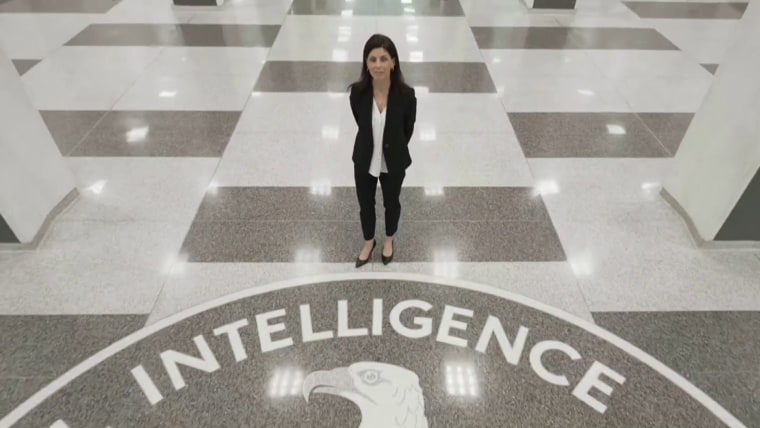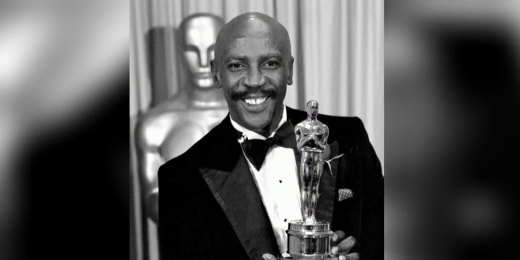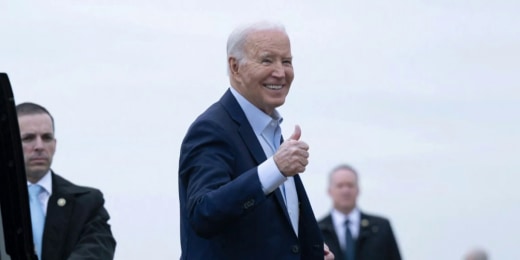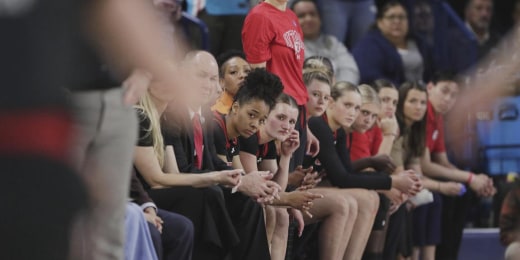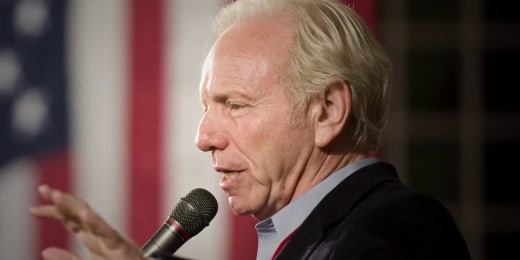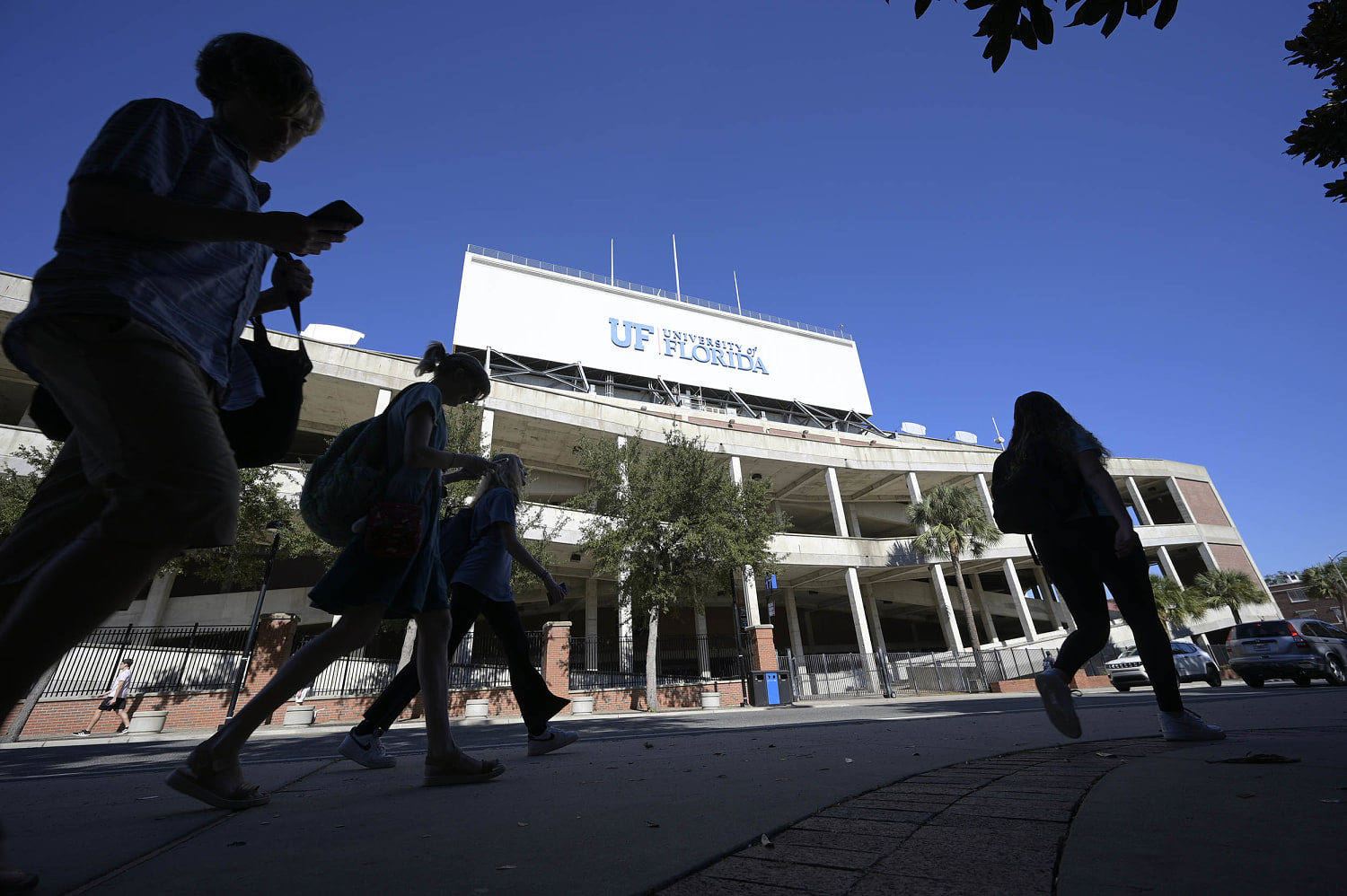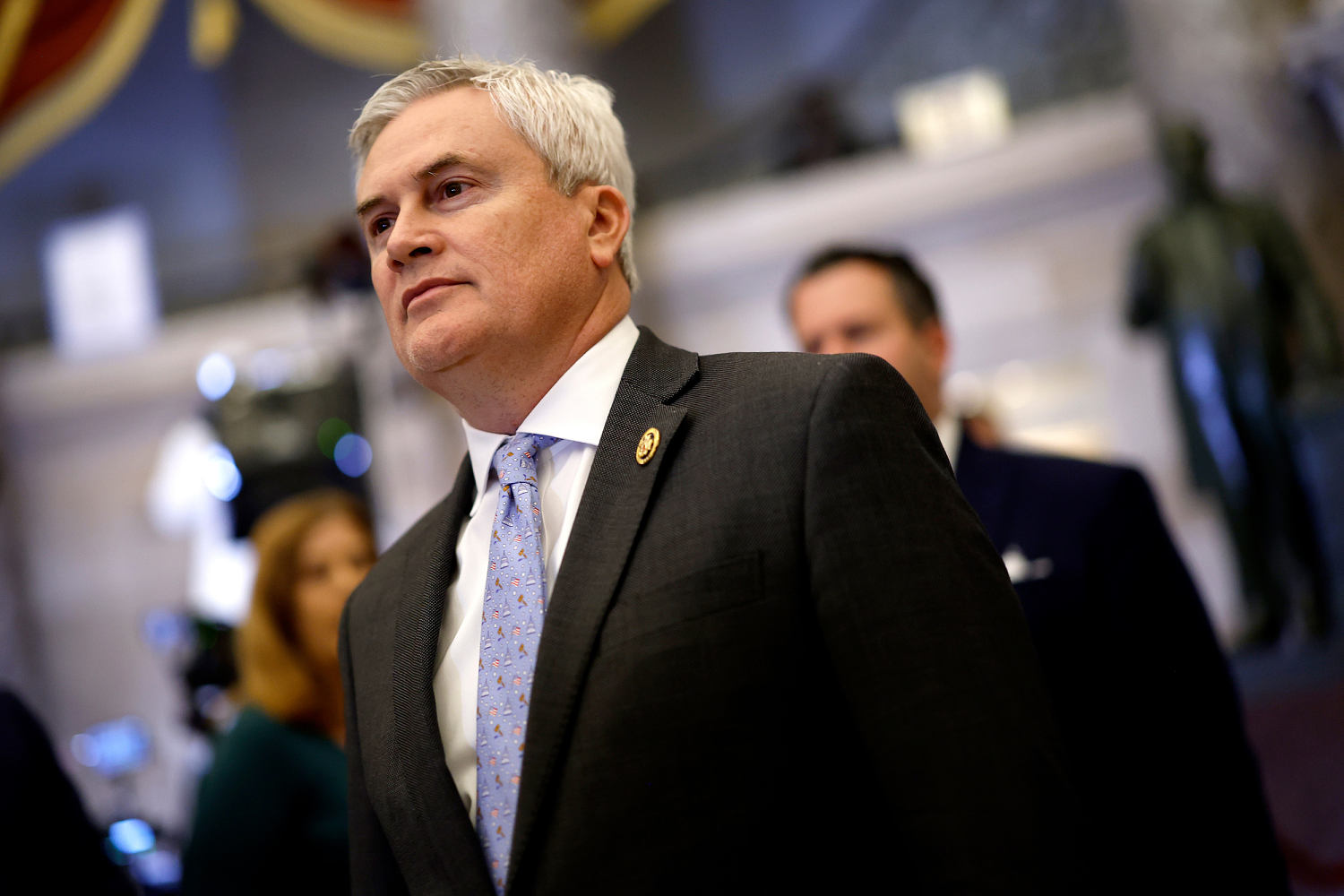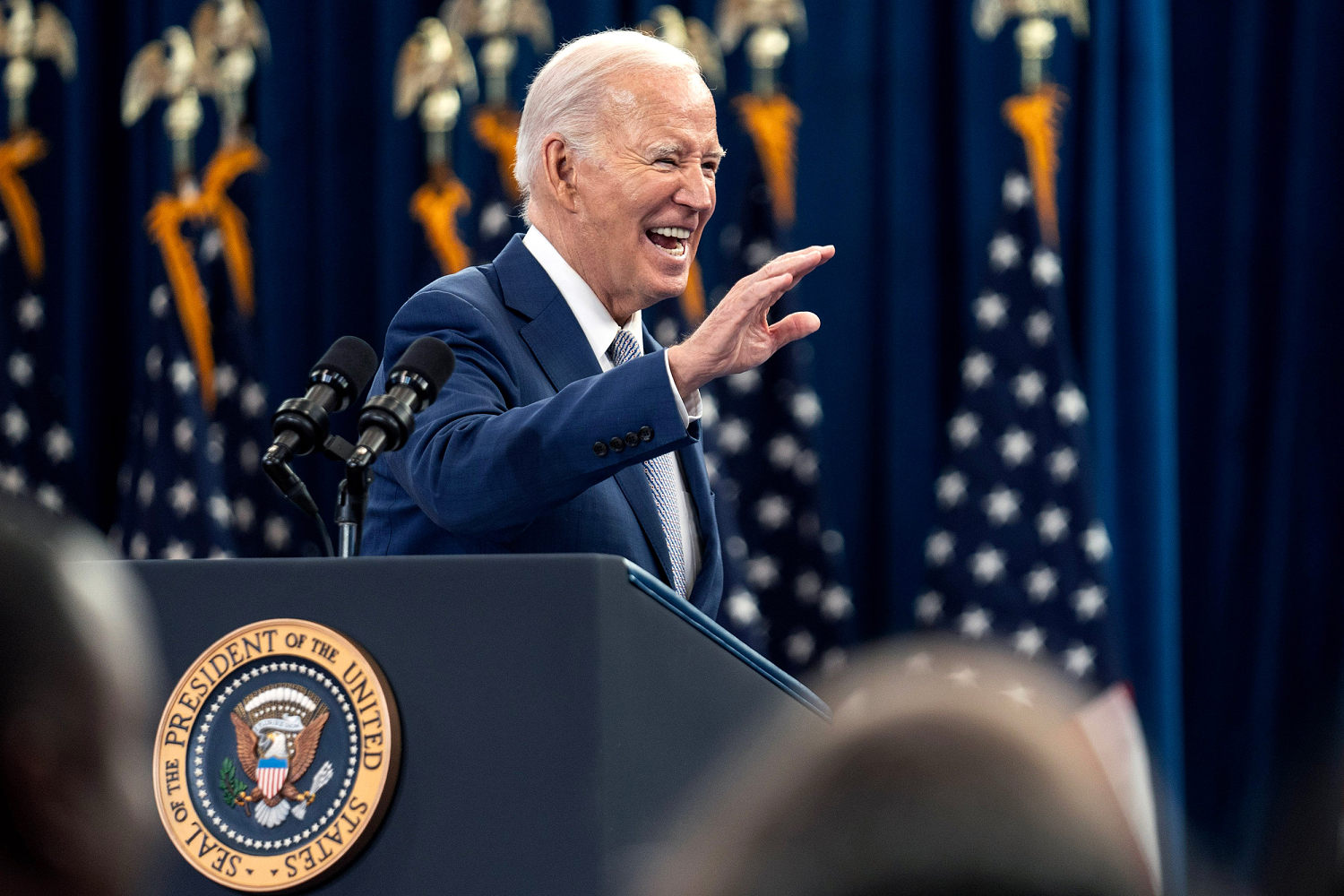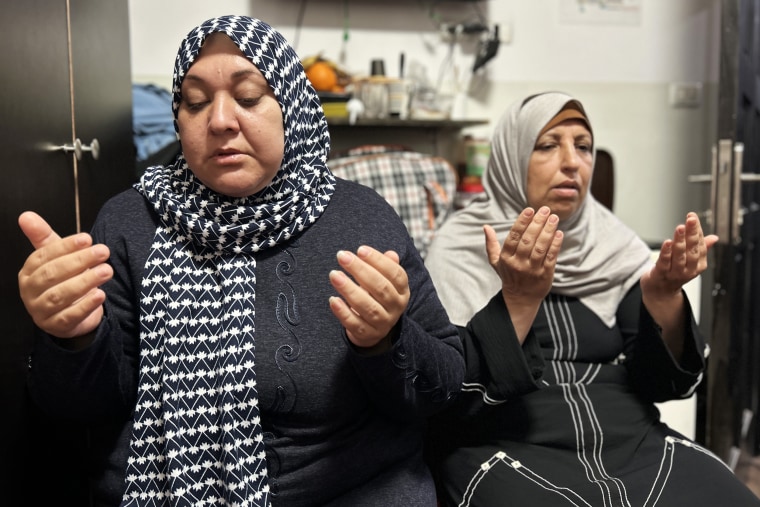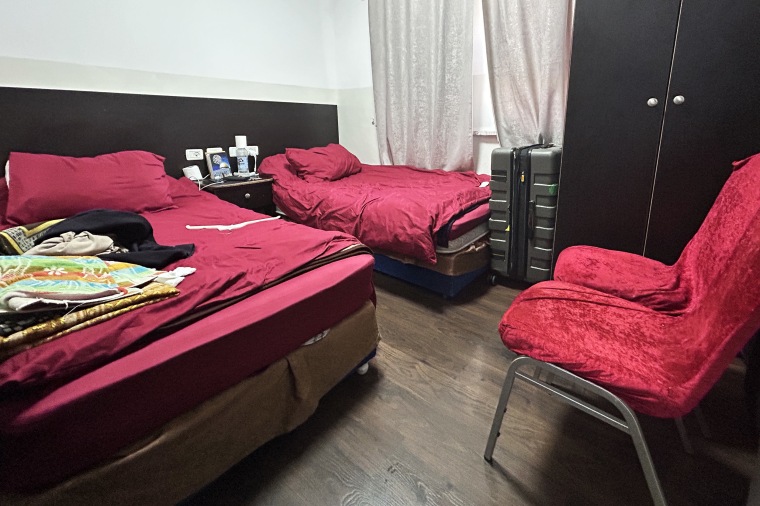FAYETTEVILLE, N.C. — Everywhere he turns, President Joe Biden and his campaign are playing defense across the 2024 electoral map.
That is except for one state: North Carolina.
In the Tar Heel State, where Biden and Vice President Kamala Harris are set to visit Tuesday, favorable demographics, a string of major Republican nominees painted as extreme and a rapidly changing electorate that only narrowly backed former President Donald Trump in 2020 has Democrats feeling optimistic about their chances to flip the crucial battleground.
But with Biden’s popularity lower since his last run, Republicans here aren’t fretting yet. Polling shows Trump with an edge ranging from a few points to almost double digits, with even bigger leads on major issues.
“North Carolina is going to be this election’s Arizona, or past elections’ Florida,” former GOP Gov. Pat McCrory said of his state’s role in 2024 as the potential tipping point.
Republicans have a long history of success at the presidential level in North Carolina over the past 40 years, losing only once when Barack Obama carried the state in 2008. But Biden’s loss there in 2020 was the closest a Democrat has come since then, with Trump winning by just slightly more than 1 percentage point. Meanwhile, the state’s rapid growth has seen its largest Democratic-leaning counties become bigger and more blue.
That’s encouraged Democrats to be much more proactive in North Carolina this time around, particularly as it’s the only front-line swing state Biden did not carry in 2020. Already, his campaign has staffed up top positions and included the state in its $25 million battleground state ad buy. Biden’s visit Tuesday will mark his second visit to the state this year; in the 2020 general election cycle, he didn’t visit North Carolina until September.
“Anyone that you talk to from 2020 would tell you that the Biden campaign was just not here early,” said Anderson Clayton, chair of the state Democratic Party. “What we’ve really tried to do is go ahead and put boots on the ground and have an energy build up here.”
Winning North Carolina and its 16 electoral votes could be essential for Biden given his vulnerability in other states he carried four years ago. Rep. Wiley Nickel, D-N.C., who won one of the most hotly contested House races last cycle but is not seeking re-election this fall after redistricting, made the case for a North Carolina focus to Biden aboard Air Force One last year.
“The nationwide math just isn’t there without North Carolina,” he said. “You had John McCain’s ghost and John Lewis’ ghost propelling Biden to win in Georgia and Arizona, and you don’t have as much going on in those states this time, so you’ve got to look to one more and without one more state it gets really difficult … North Carolina by every account is the best opportunity there.”
Biden and Harris have billed their visit — which is technically a White House and not a campaign event — as a chance to tout in-state job growth, investments in local infrastructure and a law signed last year by Gov. Roy Cooper that expanded Medicaid as part of the Affordable Care Act. But leaders in the state see it as an opening salvo of what is sure to be a brutal and expensive campaign season.
“In 2020, we probably weren’t that high on the target list,” said Cooper, who is appearing alongside Biden and Harris on Tuesday, adding that unlike the 2020 campaign, which fell in the middle of the Covid pandemic, Biden and Democrats will get to engage in much more substantive door-to-door and in-person voter engagement. “You’re going to see organization that we haven’t seen before.”
Surveys so far show Trump ahead. A Marist College poll taken after this month’s Super Tuesday primaries, which had a margin of error of 3.6 percentage points, found Biden trailing the former president by 3 points — with the same survey showing Democratic state Attorney General Josh Stein leading Republican Lt. Gov. Mark Robinson by 2 points in the battle for governor.
The same poll showed Trump with 12- and 9-point edges on immigration and the economy, including a 22- and 17-point edge respectively with independents. Biden held a 5-point advantage with voters on abortion and a 1-point edge on preserving democracy, which was a top concern for North Carolina voters.
Other preprimary surveys, including from Fox News and Bloomberg/Morning Consult, showed Trump leading by 5 to 9 points.
Couple those results with Trump having already pulled off back-to-back victories here, and his team is feeling good about their chance to make it three in a row. Trump has also elevated several veterans of North Carolina races: Senior adviser Chris LaCivita previously worked on McCrory’s campaign, and new Republican National Committee Chairman Michael Whatley formerly led the North Carolina state party. New RNC co-chair Lara Trump also hails from the state.
“In 2016 and 2020, Democrats lit money on fire in North Carolina only to lose to President Trump,” Anna Kelly, an RNC spokesperson, said in a statement. “With President Trump’s record of success in the state and two North Carolinians at the helm of the RNC, 2024 will be no different — Tar Heel State families have felt the strain of Biden’s failures and are ready to deliver for President Trump yet again.”
‘The greatest liability’
Both Democrats and Republicans in North Carolina acknowledge that there are some true wild cards this time around. While Democrats lost a Senate race here after the Supreme Court rescinded Roe v. Wade, this year will mark the first elections for president and governor since the state’s GOP supermajority in the state Legislature overturned Cooper’s veto and enacted a 12-week abortion ban last year.
What’s more, Robinson, the GOP gubernatorial candidate, has said that he wants to further restrict abortion to six weeks. (His campaign says he supports exceptions that include rape, incest and the life of the mother.)
Robinson himself will be a focal point of the campaign. Formerly a prolific poster to his personal Facebook page, Robinson has been in the spotlight for years over comments that include linking homosexuality to pedophilia, calling homosexuality and transgenderism “filth,” and saying that the Black Panther franchise was “created by an agnostic Jew and put to film by [a] satanic marxist” before using a Yiddish slur for Black people. That is in addition to other comments and posts critics have condemned as sexist, Islamophobic and antisemitic.
Robinson in October insisted he is not antisemitic and distanced himself from his old social media posts, describing them as “poorly worded” in remarks for the state Legislature, adding: “There is no antisemitism standing here in front of you.” Facing a backlash over his anti-LGBTQ remarks in 2021, Robinson said he would “fight for” the rights of LGBTQ community.
Democrats are hopeful that they can take Trump down in the state by closely tying him together with Robinson, whom the former president called “Martin Luther King on steroids,” in endorsing him at a North Carolina rally this month.
One Trump ally predicted Robinson’s history of remarks could turn off some evangelicals who are staunch supporters of Israel, and that he will face far more in negative spending than McCrory did as an incumbent in 2016.
“The open question is how Trump deals with statements that Robinson makes and whether [Democrats] can tie the two together,” this person said. “So if I’m Biden, I’m going to try to do that.”
“I do think it’s an uphill climb for Biden on Trump right now. I’d bet on Trump,” this person added. “But it’s entirely in Trump’s hands about how he deals with Robinson.”
L.T. McCrimmon, a senior adviser to Biden’s campaign, said in a statement that North Carolina Republicans “continue to alienate the voters who will decide this election with their extreme rhetoric and backwards policies,” targeting Trump for “doubling down on his toxic agenda by hand-picking a slate of extreme candidates” and calling the state “ground zero for the extreme and losing MAGA agenda.”
Democrats have also taken aim at other down-ballot, statewide candidates, including Dan Bishop, the GOP nominee for attorney general and current member of the House Freedom Caucus, and Michele Morrow, a conservative activist and GOP nominee for state superintendent of public instruction who previously expressed support for violence against Democratic leaders.
But none have garnered the attention Robinson has.
“The greatest liability for Donald Trump, on his whole national race for president that is greater than any legal liability he’s currently facing, is Mark Robinson on the gubernatorial ticket,” Paul Shumaker, a longtime Republican operative in the state, said. “And the reason being is the Democrats will move to link Trump and Robinson together and put them in lockstep.”
Mike Lonergan, communications director for Robinson’s campaign, said in a statement that Robinson “is very bold and outspoken about his Christian faith” and is “not a career politician that’s been groomed for higher office for decades — he’s a former factory worker.”
“As Lt. Governor Robinson has often said, we don’t live in a theocracy, we live in a constitutional republic,” he said. “If and when he should become governor, he will take the oath and duties of his office with the utmost respect, working to make North Carolina better for people of all backgrounds and walks of life; by growing our economy, reforming our schools and creating a culture of life that does more to support mothers and families.”
Jonathan Felts, a longtime North Carolina operative who is leading a pro-Robinson super PAC, said Robinson’s opponents are greatly overestimating how unknown the candidate is, while greatly underestimating his appeal.
“They think this is a phenomenon unique just to blue collar, working-class grassroots,” Felts said of Robinson’s meteoric rise through North Carolina GOP circles. “And that’s not the case. It doesn’t matter if you’re a country club Republican, big commercial developer, one of the largest car dealers in the country … they’re all in on Mark Robinson.”
And with Robinson generating headlines throughout North Carolina for years, voters aren’t just being introduced to him.
“They’ve all heard about the controversies,” he said, “And they’re still sticking with him.”
No matter which way the gubernatorial race goes, it will be historic. Robinson, should he win, would be North Carolina’s first Black governor. Stein, his opponent, would be its first Jewish chief executive. Another interesting wrinkle to the race is North Carolina’s long history of ticket-splitting, specifically sending Republicans to the White House or Senate while voting for Democrats for governor. And initial polling suggests that could happen again this time, just as it did in 2016 and 2020 when Trump and Cooper won on the same ballot.
Winning those crossover voters could be critical for both Trump and Biden, while another group of voters — those who cast ballots for former South Carolina Gov. Nikki Haley in this month’s Republican presidential primary — could prove key to both coalitions as well.
So far, the candidates aren’t putting much distance between themselves and the top of the ticket. Robinson has already campaigned with Trump, while Stein is set to appear at Biden’s Tuesday event.
“I think he’s the one who can deliver a better future for the people of North Carolina in this country,” Stein said of Biden. “But the voters will choose us on our own merits.”
